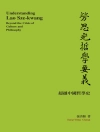Discusses the journey of Buddhist ideas on awareness and personhood from India to China.
Encounters of Mind explores a crucial step in the philosophical journey of Buddhism from India to China, and what influence this step, once taken, had on Chinese thought in a broader scope. The relationship of concepts of mind, or awareness, to the constitution of personhood in Chinese traditions of reflection was to change profoundly after the Cognition School of Buddhism made its way to China during the sixth century. India’s Buddhist philosophers had formulated the idea that, in order for human beings to achieve perfect enlightenment, they had to produce a state of awareness through practice that they described as ‘luminous.’ However, once introduced to the Chinese tradition, the concept of the ‘luminous mind’ was to become a condition already found within human nature for the possibility of achieving human ideals. This notion of the luminous mind was to have far-reaching significance both for Chinese Buddhism and for medieval Confucianism. Douglas L. Berger follows the transforming path of conceptions of the luminosity of consciousness and the perfectibility of personhood in order to bring into clearer relief the history of Indian and Chinese philosophical dialogue, as well as in the hope that such dialogue will be reignited.
قائمة المحتويات
Acknowledgments
Introduction
1. Heart and Person: Early Chinese Thought
The Conscious Body
The Heart: Keeping Tallies and Moral Feelings
Personal Cultivation and Sociality
When Spirit Dethrones the Heart
2. Two Brāhmiṇical Selves
The Unconscious Body
Affects, Habits, and New Bodies
Time, Identity, and the Abode of Memory
Selves as Persons in Brāhmiṇical Thought
3. Eliminating Identity and the Luminous Mind in Yogācāra
Bodily-Cognitive Interdependence
‘Self’ as a Reification of Habits
Stored-Up Awakening and the Luminous Mind
4. Mind, Nature, and Conduct: Two Approaches of Chinese Buddhism
Origin, Nature, and Causality
Making Our Nature Our Aim
Lumps of Flesh with Bright Minds
Guests, Hosts, and Trust in Oneself
5. A Space for Moral Reflection: The Confucian Rapprochement
Mind as Matter and Sense
Coherence and Unity in Feeling
Varieties of Learning for Oneself
6. Luminosity, Potential, and Personhood
Luminosity: Making the World Manifest
The Body, Nature, and Potentiality
The Provocation of Optimism
Notes
Bibliography
Index
عن المؤلف
Douglas L. Berger is Associate Professor of Philosophy at Southern Illinois University Carbondale. He is the author of ‘The Veil of Māyā’: Schopenhauer’s System and Early Indian Thought and numerous essays on both Indian and Chinese philosophy.












